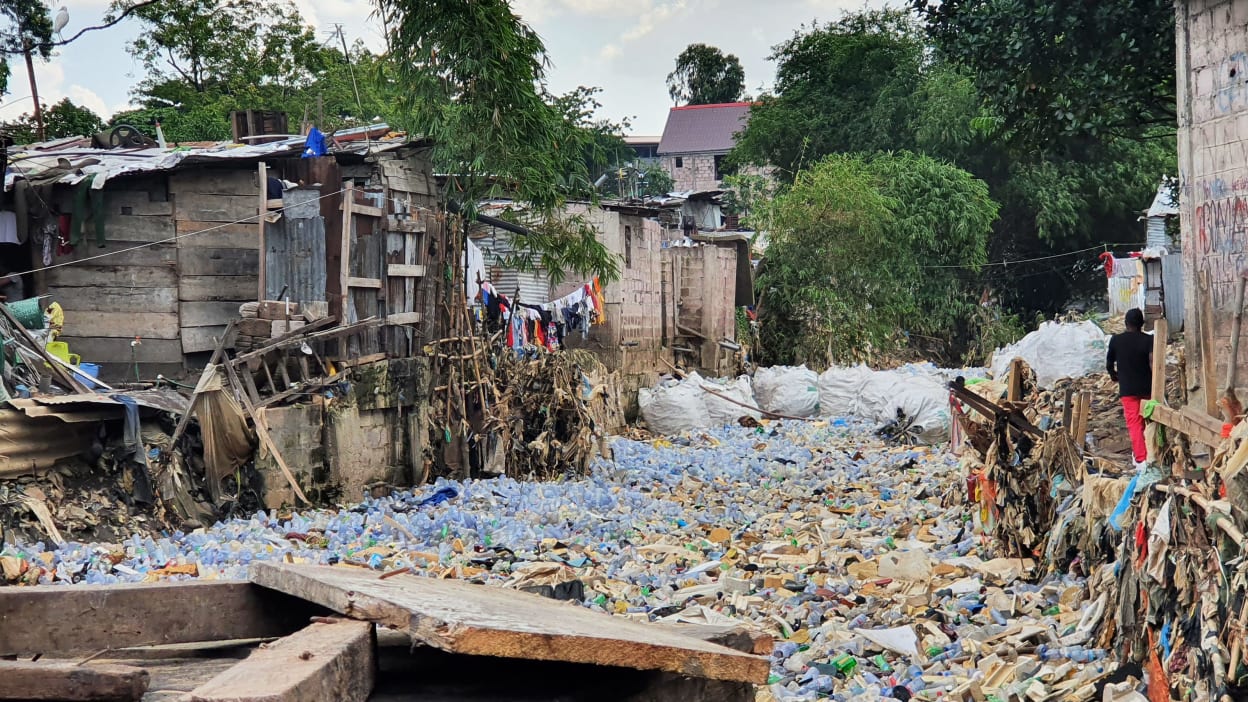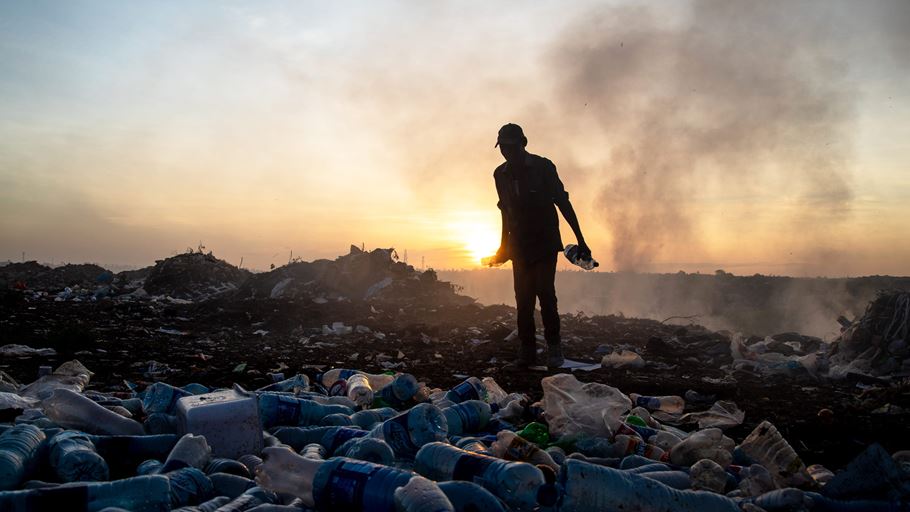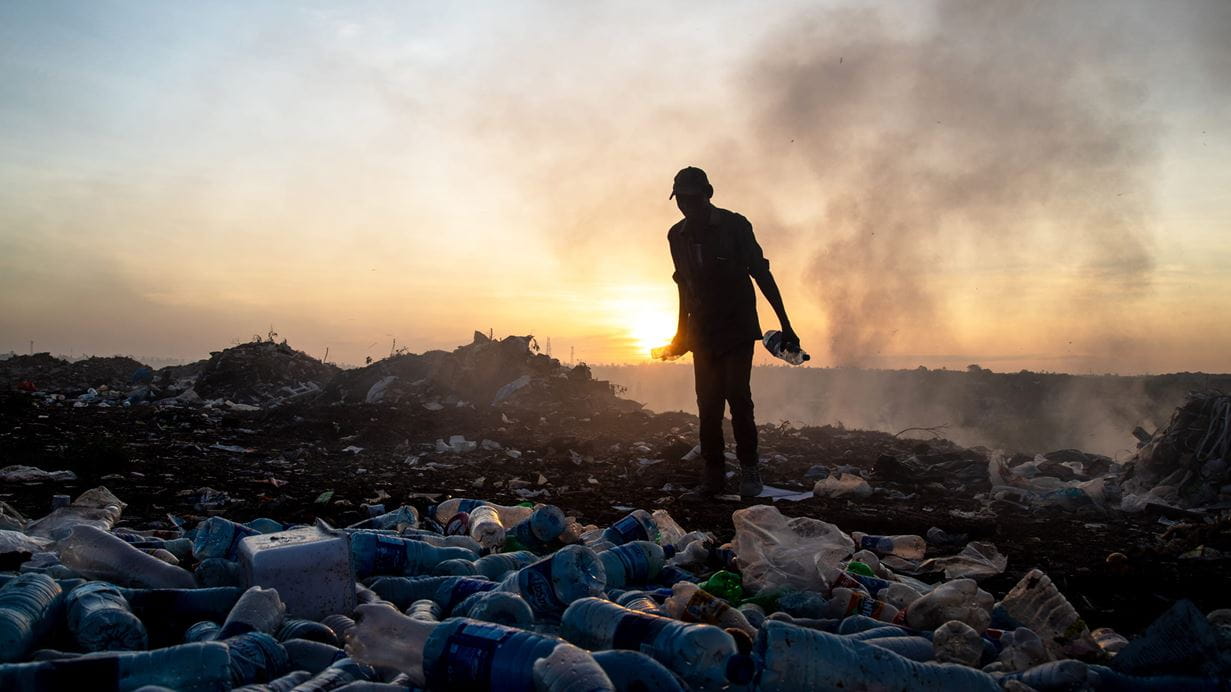In March 2022, world leaders agreed to work together on the first ever international agreement to address plastic pollution. Until then, there hadn’t been a coordinated approach to this huge global problem. By the end of 2024, leaders from 200 governments around the world will have agreed on the contents of a Global Plastic Treaty. To do so, they will be meeting together approximately five times, with the next round of talks set for May 2023.
And Tearfund is calling for this treaty to fully address how plastic pollution impacts people living in poverty.
Some sad plastic waste statistics
Let’s start with the easiest bit to understand – some (rubbish) facts:
- We (humans) throw away about 300 million tonnes of plastic waste every year. That’s enough to cover almost 50,000 football pitches a day.
- Two billion people – one in four of us – have no safe way to dispose of our rubbish, so are forced to live and work amongst mountains of disease-breeding waste.
- This is making people sick – releasing toxic fumes, flooding communities and causing up to a million deaths each year. That’s one person dying every 30 seconds from diseases caused by the waste problem.
- The UK throws away four double-decker busloads of plastic waste every minute.
- Around the world, 60 rubbish-truck’s-worth of plastic is dumped in our oceans every hour.
- Only nine per cent of plastic is recycled.













